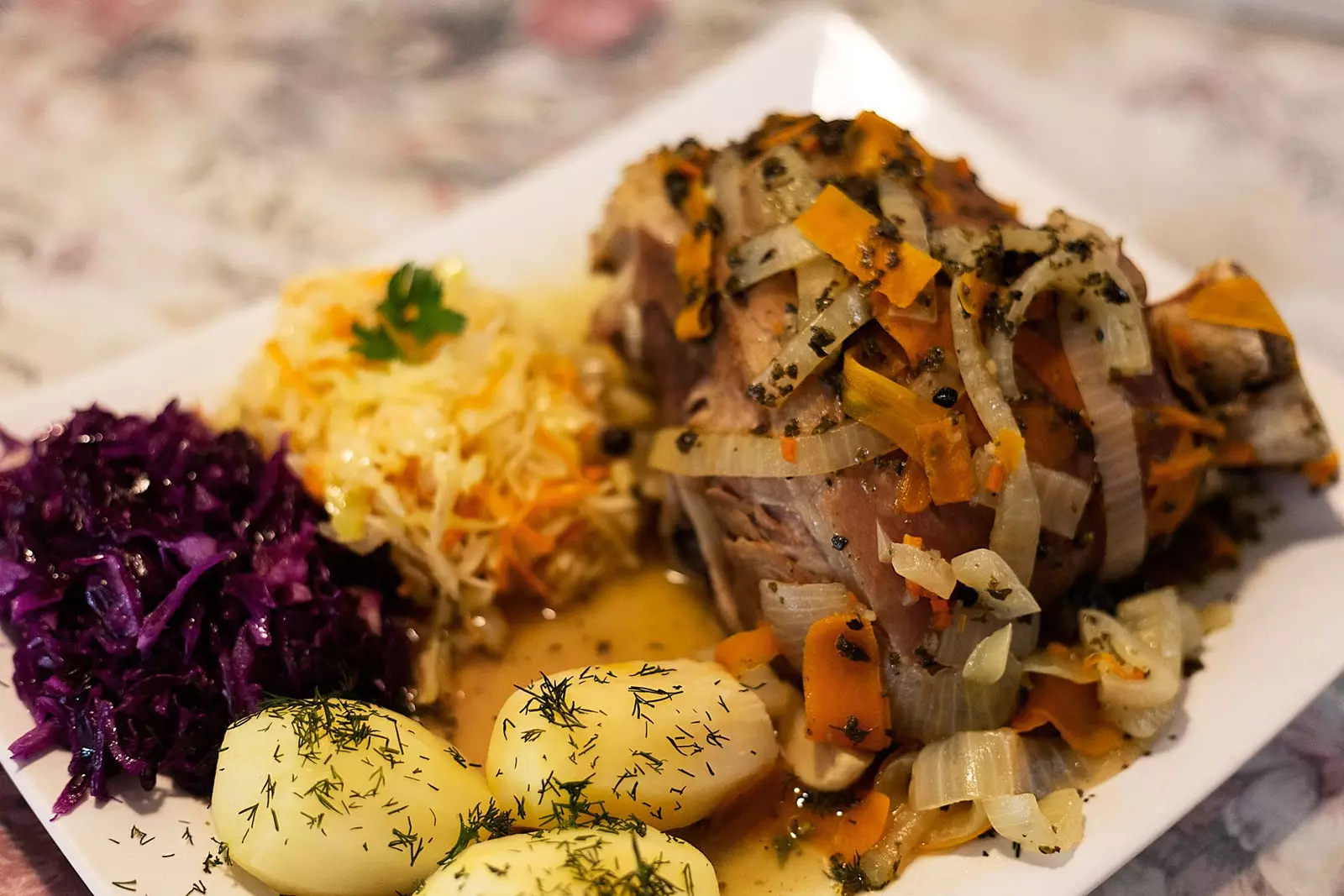
The first traditional Polish cuisine restaurant in Spain
Between upholstery, crochet and misty paintings the aroma of smoked sheep's cheese from the mountains wafts through; fried and served with blueberry jam (Oscypek na Ciepło z Żurawina) .
In ** La Polonaise ** the recipes from mothers, mothers-in-law, grandmothers and great-grandmothers like memorabilia. Like grandfather's paintings , one after another on the wall, rescued from the family home, which must be prevented from twisting.
And not one iota of the ingredients, quantities or cooking times are changed. Not only so that it doesn't change the flavor; maybe, too so that oblivion is not responsible for moth-eaten memory.
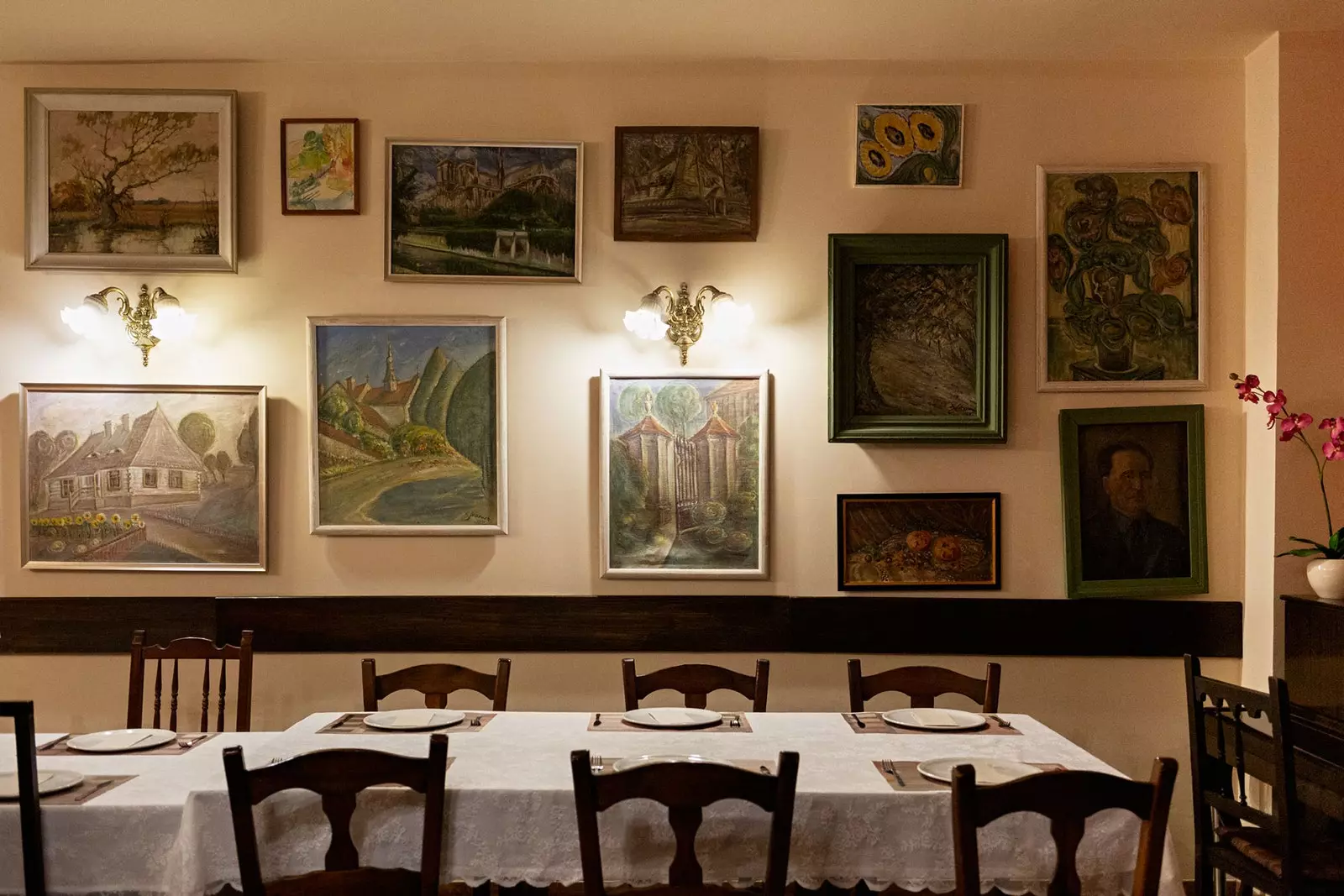
La Polonaise: recipes from the Polish matriarchy in Madrid
ONCE UPON A TIME A TRIP TO OLD EUROPE
Joanna Skaruch arrived in Spain in May 1984 thanks to the contract of her husband, an engineer specialized in hydroacoustics (no, nothing to do with the references to the Cold War in a James Bond film).
Among the possible alternatives that were considered were Canada, Norway or Germany. Finally decided that Spain was the best destination to put down roots again once hers were curtailed by General Jaruzelski's curfew in 1981. However, she did not renounce her Norwegian nationality (you never know...).
Norwegian passport? Like Joanna, Poles who were in Norway when Martial Law was imposed on the frigid morning of December 13, 1981, were granted political asylum. Many were able to leave in this way a land once again marked by geopolitical polarization. But they took with them the essences hidden in the palate. Those that cannot be forgotten in exile.
Many others had to leave their passports in the hands of the authorities. And they did not see them again in their dresser drawer until the late 1980s and early 1990s. Then the profile of Polish migrants (before this period immigration was not exactly a plausible phenomenon) changed radically. “Poland was plunged into a critical economic situation, from which it has taken 30 years to recover,” says Joanna.
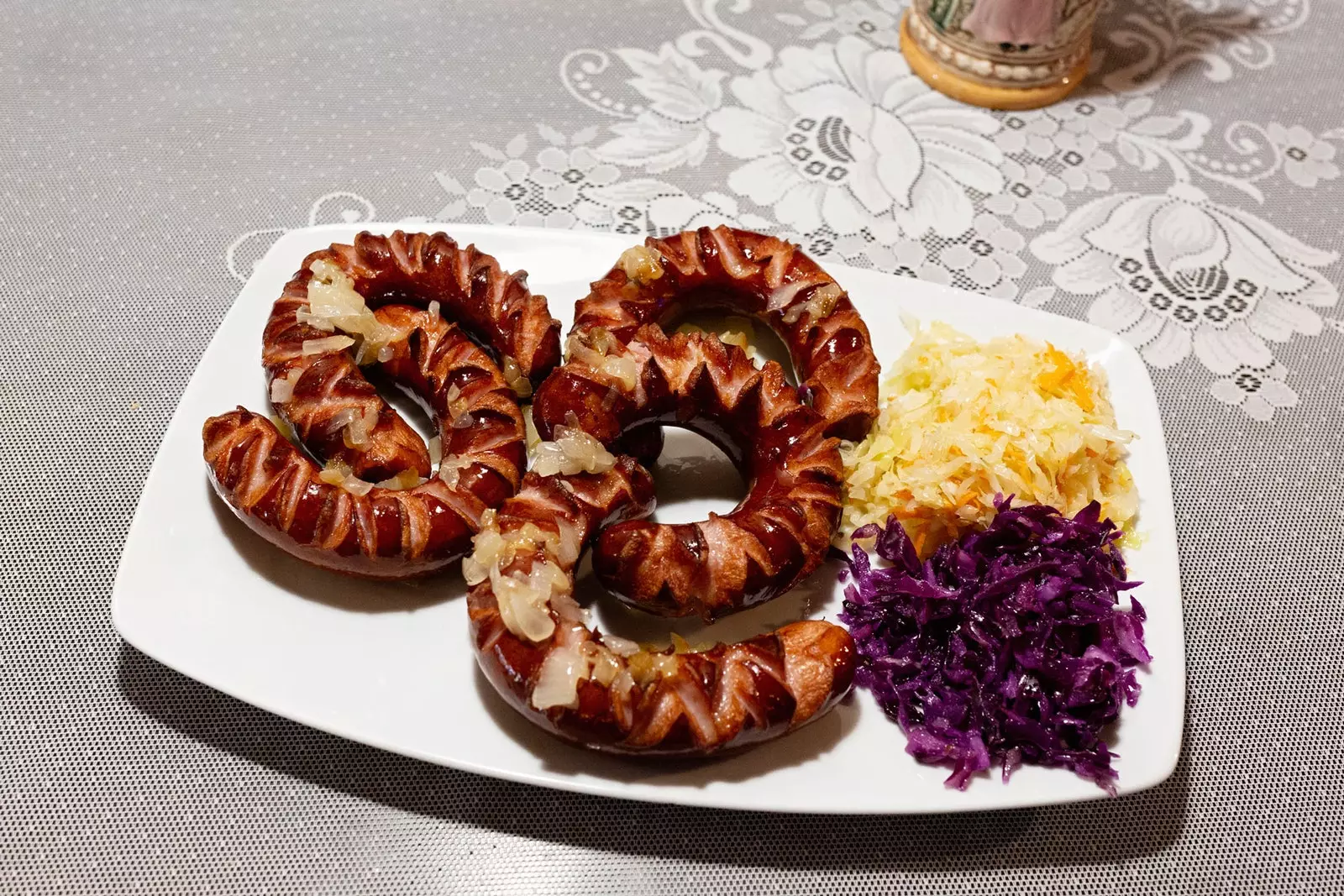
Popping sausages with fried onions
The great wave of Poles who left their homeland behind in search of a prosperous future belongs to that generation that lived through 'The Autumn of Nations' and the definitive dismemberment of the USSR. Many passed through Spain and Portugal in transit to Canada, the United States, South Africa or Australia.
But the visa did not arrive for all applicants. For these, destiny began and ended in Madrid. And they became good clients of the first business of Joanna Skaruch (who speaks French, Spanish, Russian and, of course, Polish and whose first profession is in the tourism sector): a retail business specializing in Polish products.
The musztarda, the nasal itching of the chrzan (horseradish) , the sour aftertaste of ogórki kwaszone (pickled cucumbers) and a nice golden shot of Perła (famous Polish beer) make time pass more indulgently.
The Spanish crisis closed the store, but she opened a restaurant. And Joanna maintains a corner selling Polish imports inside her current store.
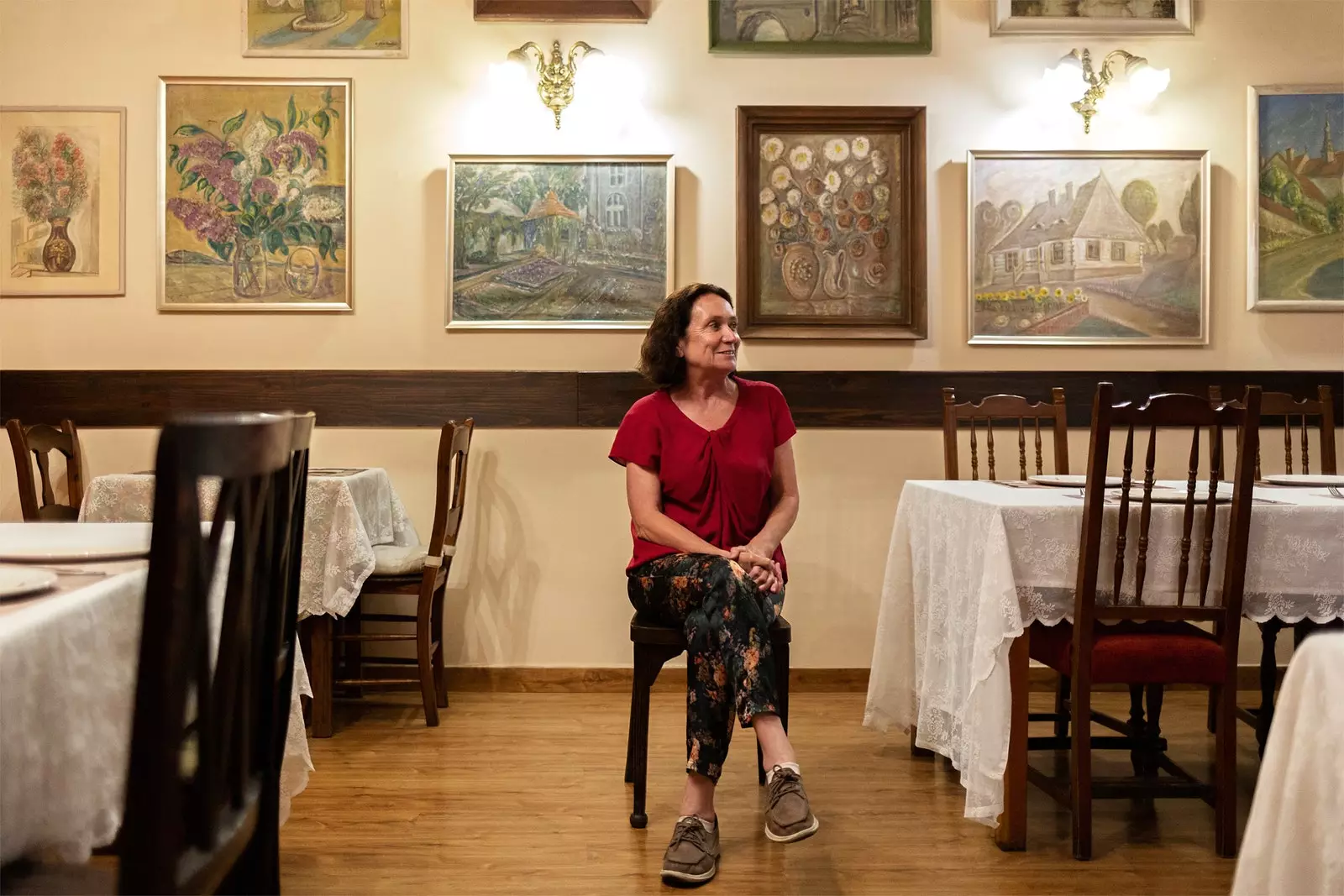
Joanna Skaruch, the boss of all this
THE IMPRINT OF POLISH SPICES
In La Polonaise we delve into the territory of longing and evocation of a family home. We do not expect aseptic designs or avant-garde nuances in its flavors.
Although speaking of avant-garde, when passing through the modest lobby of his cafeteria and entering his dining room, We could well imagine a group of intellectuals from the beginning of the 20th century warming their skeletons in the heat of the Żurek: tasty traditional soup, with timid acidity, based on rye flour, hard-boiled egg and sausages. That can be served in a hollowed out bread as a traditional container.
Because when we think of the great Polish cultural heritage and the splendid manifestations of its painting, its literature or its cinematography (of whose golden age Martin Scorsese is a faithful admirer and conservator), we find no noise or unnecessary ornaments.
The humility of his artistic expression is honest, free, committed and highly poetic. When not, metaphysics. At the time, the surrealist fog worked hard to circumvent censorship creatively and humorously, like subtle tickles that activate a spring in someone who contemplates something, finding what he is looking for. And the gastronomy, as we know, reflects the idiosyncrasies of the town.
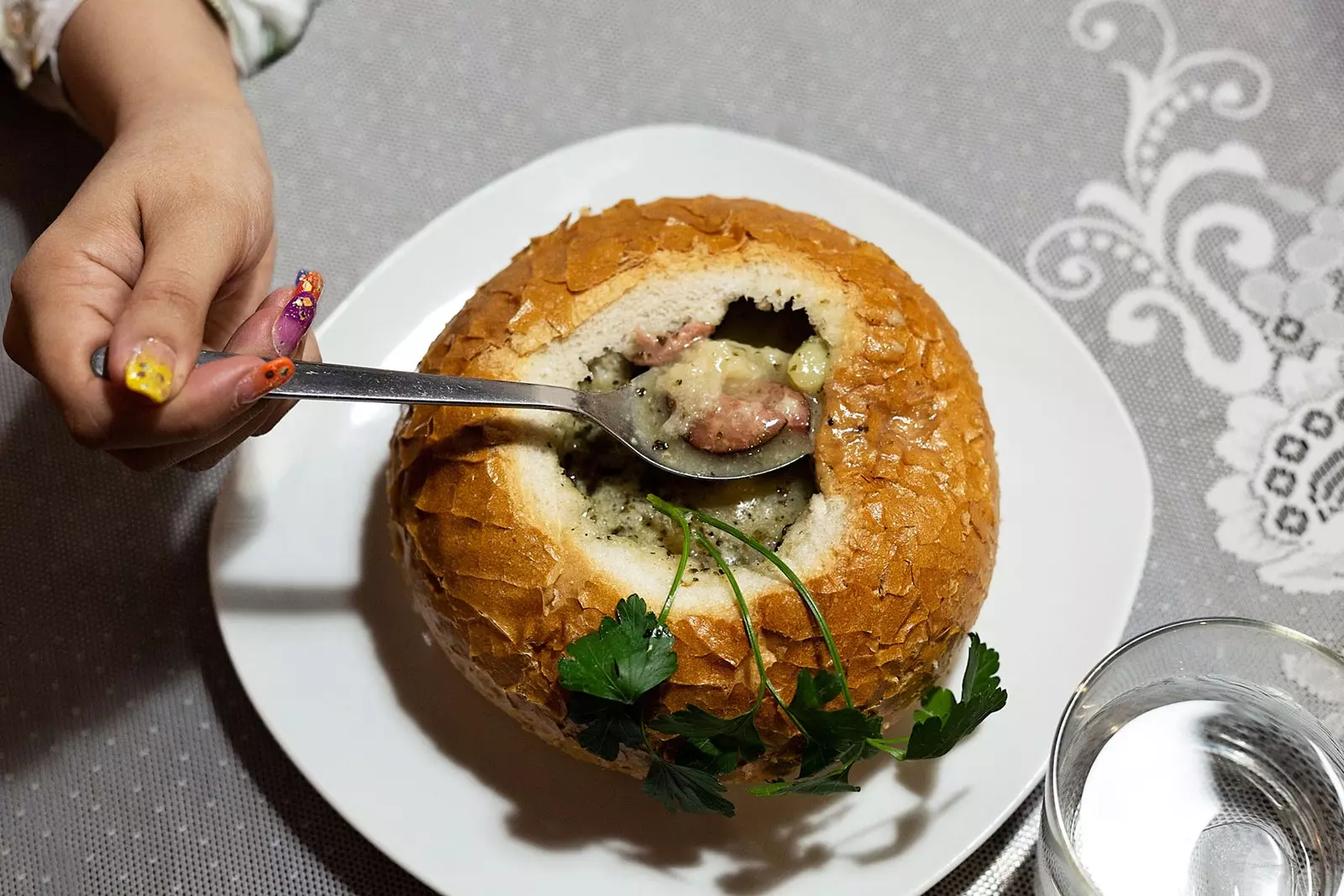
Zurek, the tasty traditional Polish soup
In all traditional Polish dishes, such as those that we can enjoy at La Polonaise, we find suggestive spices, which seem to belong to the antipodes of the Mediterranean aroma. Joanna brings them directly from Poland, so that they fulfill the designs of the family cookbook. Among them, they deserve to be highlighted marjoram _(majeranek) _, dill _(koperek) _ and ziele angielskie , also known as dioecious pepper.
The hustle and bustle of the kitchen does not stop, especially when we talk about the craftsmanship of pierogi, Polish dumplings (stuffed with seasoned meat, fresh cheese and potato or cabbage and mushrooms) .
“On average, about 600 pierogi are prepared per week. The girls in the kitchen say that when they die (in heaven, of course, there is no other option for them), they will continue to make pierogi, like a spasm or an involuntary movement”, Joanna laughs as she imitates the nervous gesture of carefully closing the pasta that wraps the dumplings.
Polish home cooking is very tasty and forceful, being some of its great protagonists comforting soups, pork, duck (in La Polonaise can be enjoyed on request, roasted with apples and plums, Kaczka pieczona z jabłkami) onion, cabbage, cabbage, pickles, cucumber and sour cream stroking sprigs of dill.
The "pop" sausages with fried onions should not go unnoticed by the visitor _(Kiełbasa z cebulką) _, religiously accompanied by red cabbage and the aforementioned mustard and horseradish paste _(chrzan) _. Grateful companions also for the resounding and juicy beer roasted knuckle, crowned by the carrot and the ubiquitous poached onion (Golonka pieczona w piwie).
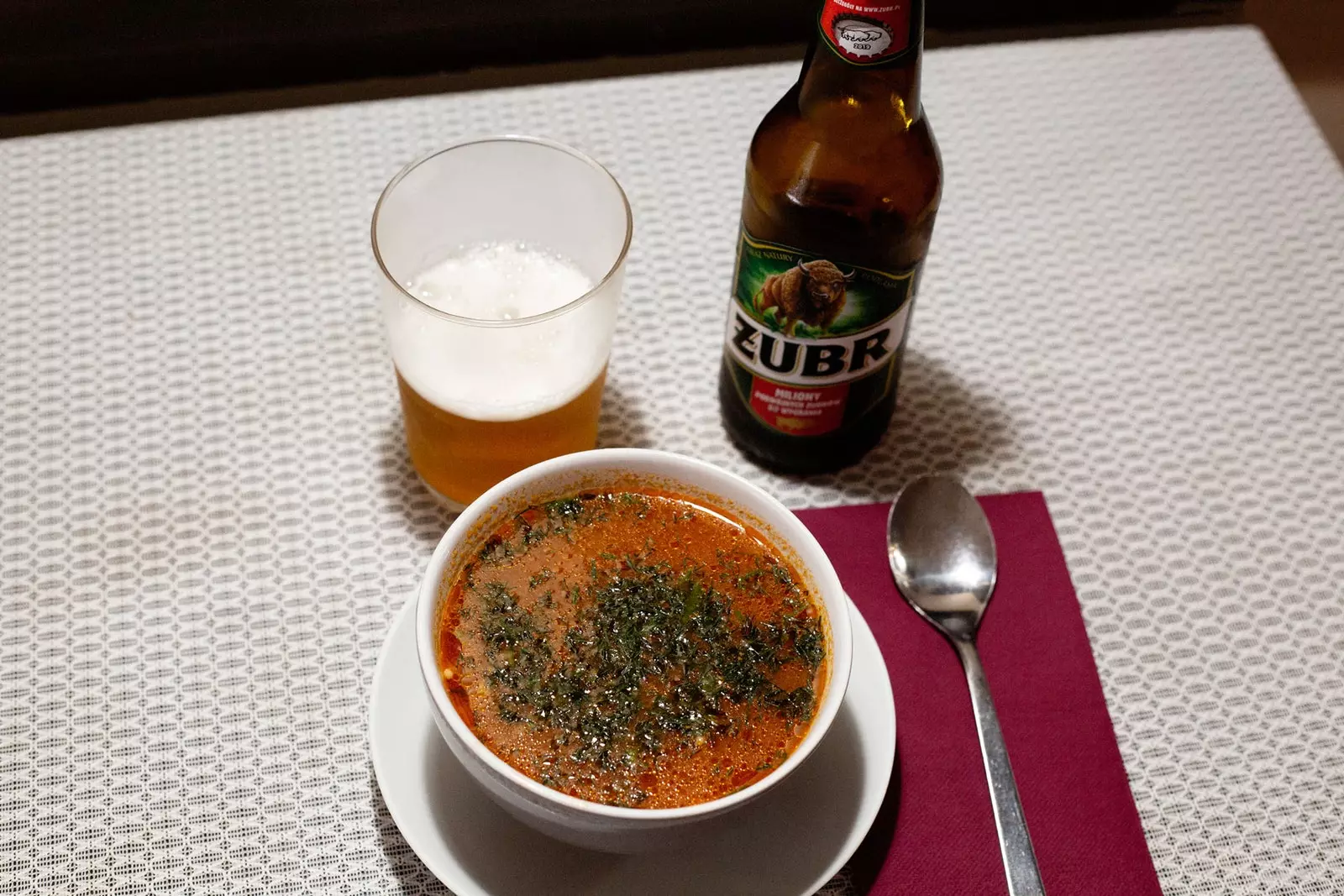
The soup is one of the star dishes
The tarts are homemade (and exquisite) : cheese, poppy seed or apple. The latter (Szarlotka, original recipe from the head chef's mother) captivates us with its crispy structure.
Digestion is happier with Żubrówka, the fiery bison grass vodka.
The anecdotes are as succulent as their Bigos (cabbage, boletus and meat stew). The Polish ambassador to Spain, Marzenna Adamczyk, continues to meet regularly at her restaurant (who is becoming an icon of popular culture, by the way), and other figures from the intelligentsia with fascinating life stories forged in exile.
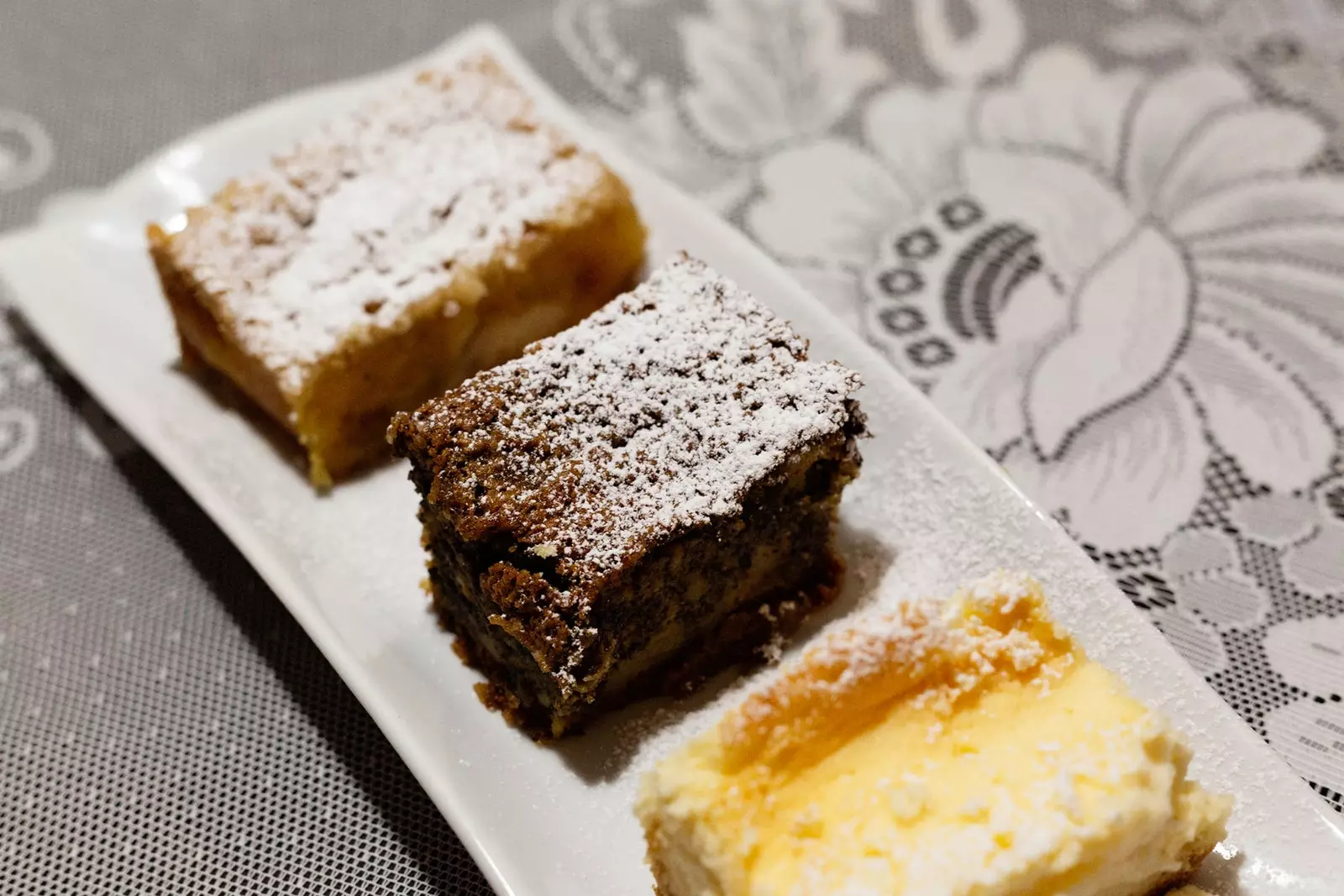
Leave room for delicious cakes
In one of the pillars of his dining room, surrounded by the paintings of Joanna's paternal grandfather (who was a naturalist painter and teacher), he captures our attention some sparkling costume designs. Joanna explains to us what they are a gift from Elizabeth Wittlin Lipton, daughter of the famous Polish poet and novelist of Jewish origin Józef Wittlin. To whom Julian Tuwim, remembered by many as the great Polish poet, dedicated several verses as a child that today are considered among the best in Central European children's literature.
“Restore!” The phone keeps ringing and needs to be answered. They just ordered another 110 pierogi for the catering of a Polish wedding. And we remind you that they are made one by one…
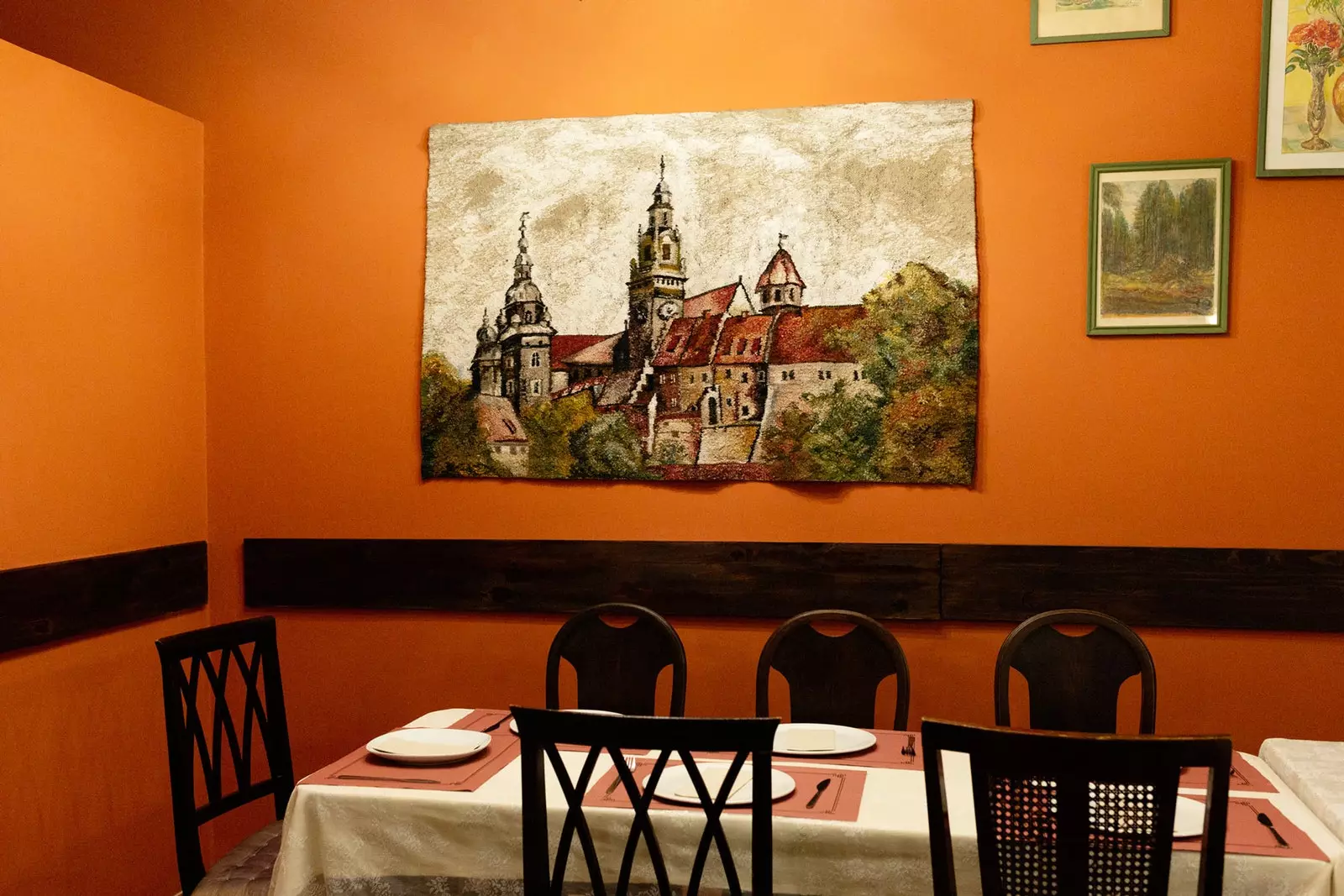
In La Polonaise the recipes of mothers, mothers-in-law, grandmothers and great-grandmothers are treasured as memorabilia
Address: Calle de Narciso Serra, 3, 28007 Madrid See map
Telephone: 91 433 94 57
Schedule: Sunday to Saturday from 13:00 to 00:00 (they have a bar and cafeteria). Lunch hours: from 1:30 p.m. to 3:30 p.m., dinner hours: from 8:30 p.m. to 11:00 p.m.
Half price: €20
